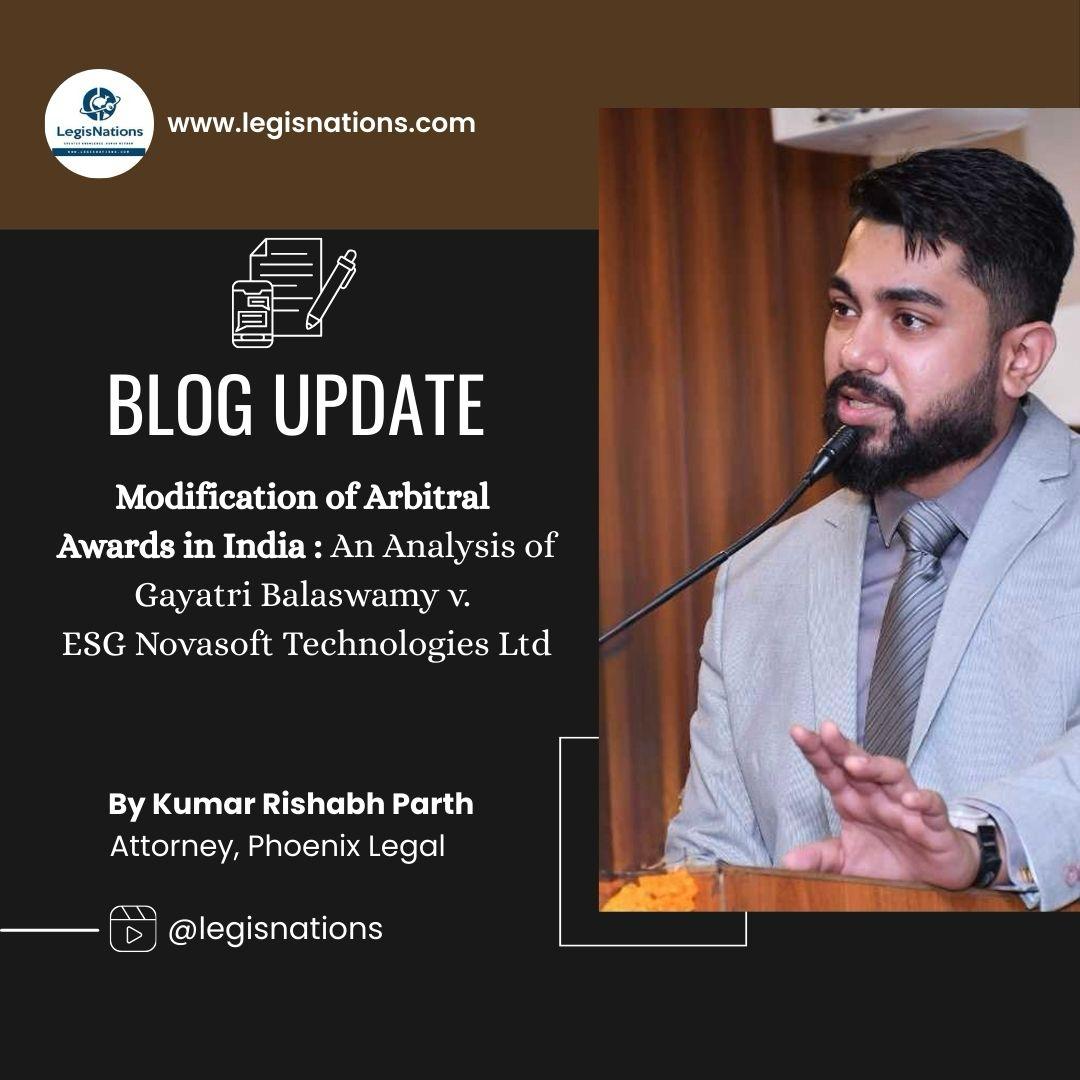Introduction
The Supreme Court of India’s recent decision in Gayatri Balasamy v. ISG Novasoft Technologies Limited and its connected civil appeals marks a significant development in the jurisprudence surrounding the power of courts to modify arbitral awards under the Arbitration and Conciliation Act, 1996 (the “Act”). The judgment provides clarity on the extent of judicial intervention permissible under Sections 34 and 37 of the Act and addresses the conflicting positions taken in previous decisions, notably in Project Director, NHAI v. M. Hakeem (“Hakeem”). The court’s ruling has significant implications for the future of arbitration in India, particularly in cases involving severable awards and clerical errors.
Background of the Case
The appeals in Gayatri Balasamy arose from a reference made by a full bench of the Supreme Court on 20 February 2024, directing that the Special Leave Petitions be placed before the Chief Justice of India to determine the need to refer the following questions to a larger bench:
- Do Indian courts possess the jurisdiction to modify arbitral awards under Sections 34 and 37 of the Act?
- If so, is such power exercisable only when the award is severable and only part of it requires modification?
- Does the power to set aside an award under Section 34 include, in substance, a power to modify, and if so, to what extent?
- Can the power to modify be inferred from the statutory power to set aside an award under Section 34 of the Act?
- Does the decision in Hakeem correctly state the law, particularly when viewed against judgments permitting modifications of awards?
Observations of the Court
The Court observed that Section 34 of the Act categorically provides for setting aside an arbitral award but makes no express mention of the power to modify. However, the Court highlighted that the principle of severability as reflected in the proviso to Section 34(2)(a)(iv) of the Act permits the separation of invalid portions of an award from the remainder. This opens the possibility of limited modifications, particularly in cases where the award is severable and only a part of it is defective.
Moreover, the Court emphasised that modification may, in certain circumstances, serve as a more proportionate response than setting aside the entire award specifically when dealing with manifest clerical, typographical, or computational errors that are objectively verifiable and do not entail a review of the merits. The Court also noted that preventing unnecessary remands to arbitral tribunals aligns with the legislative intent of ensuring the finality and efficiency of arbitral awards.
Reasoning of the Court
The majority opinion held that while the legislative framework in Sections 34 and 37 does not explicitly grant modification powers, it does not entirely preclude such powers either. The Court observed that the correction of clerical and computational errors has been a well-established judicial practice, and such rectifications do not constitute a review of the merits of the award.
Furthermore, the Court reasoned that the power to modify post-award interest under Section 31(7)(b) is well within the scope of judicial intervention, particularly when statutory defaults or inconsistencies are evident. The judgment also acknowledged that Article 142 of the Constitution, which empowers the Supreme Court to do complete justice, may be invoked to modify an award but only under exceptional circumstances where such modification is necessary to prevent manifest injustice.
Dissenting Opinion
Justice K.V. Viswanathan, in his dissent took a restrictive view asserting that the power to set aside an award under Section 34 does not extend to modification. He cautioned against reading a modification power into the provision, arguing that such an interpretation would amount to impermissible judicial legislation and undermine the principle of minimal interference in arbitration.
Justice Viswanathan further contended that allowing modifications would blur the line between merits review and clerical corrections, potentially creating uncertainty and compromising the finality of arbitral awards. He agreed, however, that rectifications of clerical and computational errors are permissible, as they do not involve a substantive alteration of the award.
Implications and Conclusion
The majority decision in Gayatri Balasamy marks a nuanced shift in Indian arbitration law, affirming a limited power of modification while emphasising the importance of preserving arbitral finality. The Court’s approach seeks to balance the need for judicial correction in exceptional circumstances against the broader objective of minimal interference in arbitral awards.
While the ruling provides clarity, it also raises potential challenges in delineating the boundaries of permissible modifications. The implications of this decision are likely to resonate in future arbitral disputes, particularly those involving severable awards and computational errors. Thus, the Supreme Court’s ruling serves as a critical precedent in reconciling conflicting judgments and reinforcing India’s position as an arbitration-friendly jurisdiction.


